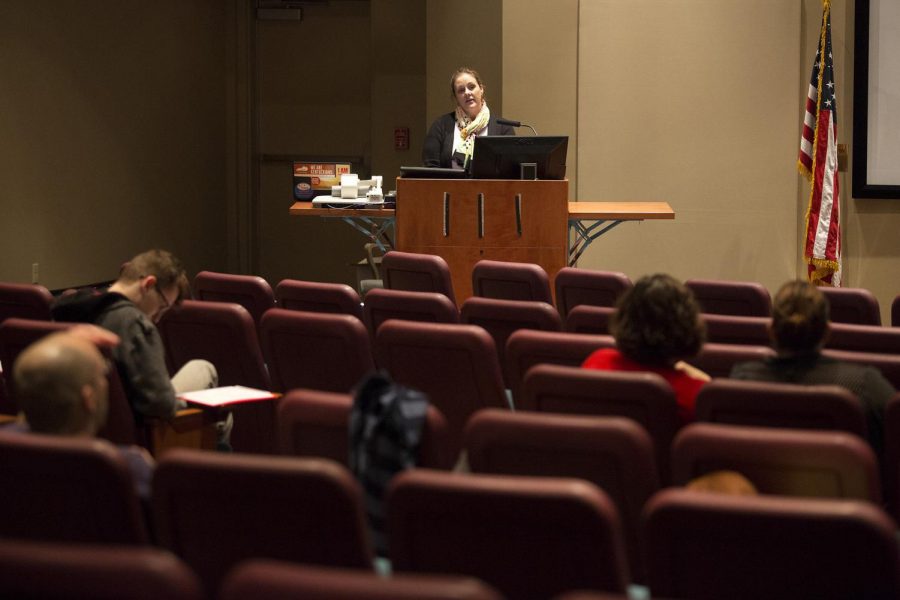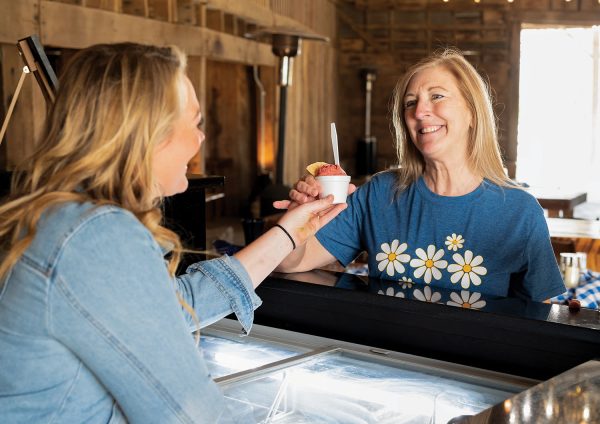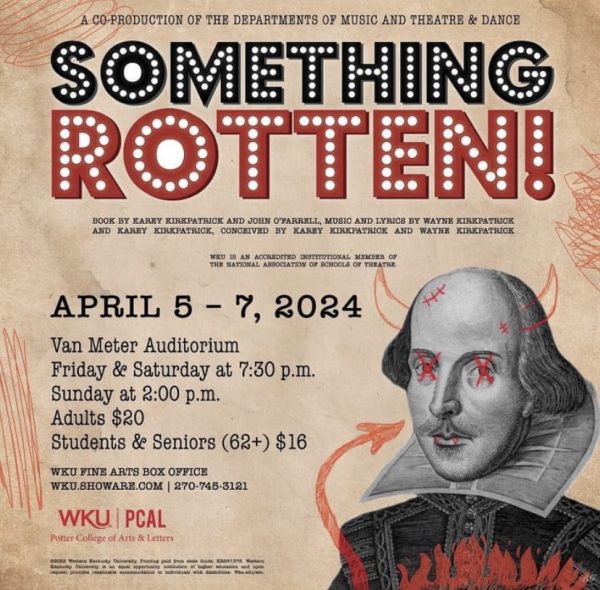Forum advocates lobbying for LGBT fairness ordinance
February 4, 2014
It is currently legal to fire someone for being or being perceived to be part of the Lesbian, Gay, Bisexual and Transgender (LGBT) community in Bowling Green. It’s also legal to deny someone of the LGBT community housing. Additionally, restaurant owners can refuse service to someone they perceive to be gay or lesbian.
In fact, all of those things are legal in 75 percent of the Commonwealth of Kentucky, Dora James, Western Kentucky regional organizer for the Fairness Campaign, said.
Saturday, several presenters came to WKU’s campus to explain the necessity of lobbying and standing behind legislation that affects the community, including the heavily emphasized fairness ordinance.
James encourages people to lobby and campaign for bills finding their way through the House and Senate, and was part of the first Citizen Lobbying Workshop held in the Mass Media and Technology Hall auditorium.
Although the crowd was only about 10 people, James said she didn’t worry much about numbers.
“If we get a handful of people who really want to learn about lobbying and who will take what we give them and use it, then I’d call it a success,” James said.
While James gave a presentation on some general ways to draft an effective letter to the editor, she spoke mostly as an advocate for passing a Fairness Ordinance in Bowling Green.
James said there are only six cities in Kentucky that have passed a Fairness Act banning discriminatory activity: Louisville, Lexington, Frankfort, Covington, Vicco and Morehead, with hopes to add Berea and Danville to the anti-discriminatory ranks.
Bowling Green has attempted to pass such legislation before but was ignored.
“We now have 17 co-sponsors on this bill, whereas we usually only have 10,” James said. “This is a record number of co-sponsors. We’re trying to pass a statewide anti-discrimination bill now.”
Patricia Minter, associate professor of history, has been involved with the Fairness Movement for as long as she can remember.
She was part of the 1999 effort to bring an Act of Fairness to Bowling Green, which was shot down by the city commission. In 2005, she began rallying for the act once more, involving members of WKU’s faculty, staff and students more than before.
After five years, an act to ensure domestic partnership passed and was available for WKU faculty and staff in January 2011.
“We want to show everyone Bowling Green is a fair and safe place to live,” Minter said. “It’s time. It’s past time.”
As Bowling Green continues to progress without a Fairness Ordinance, Minter is afraid people will overlook the city as a place to live or open a business.
“I don’t want people thinking Morehead is a better place to live or go to school,” Minter said. “I want them to want to come to Bowling Green.”
Florence senior Kristinna Mason interns with the American Civil Liberties Union (ACLU) and attended the forum. She decided to travel to Frankfort on Feb. 19 to lobby for the Fairness Ordinance.
“I think it’s especially important for the young people to be part of it,” Mason said. “We’re impacted by it. We’re going to be the ones who make the changes in the future.”














![Students cheer for Senator at Large Jaden Marshall after being announced as the Intercultural Student Engagement Center Senator for the 24th Senate on Wednesday, April 17 in the Senate Chamber in DSU. Ive done everything in my power, Ive said it 100 times, to be for the students, Marshall said. So, not only to win, but to hear that reaction for me by the other students is just something that shows people actually care about me [and] really support me.](https://wkuherald.com/wp-content/uploads/2024/04/jadenmarshall-1200x844.jpg)




![Megan Inman of Tennessee cries after embracing Drag performer and transgender advocate Jasmine St. James at the 9th Annual WKU Housing and Residence Life Drag Show at Knicely Conference Center on April 4, 2024. “[The community] was so warm and welcoming when I came out, if it wasn’t for the queens I wouldn’t be here,” Inman said.](https://wkuherald.com/wp-content/uploads/2024/04/smith_von_drag_3-600x419.jpg)






